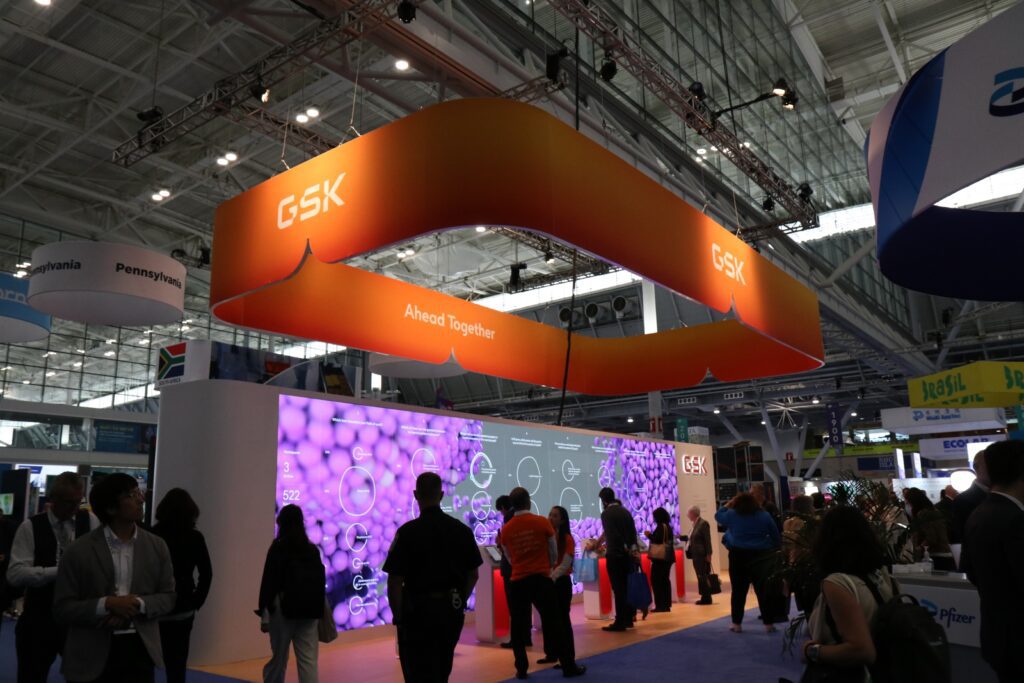From vaccine-preventable viruses to antimicrobial-resistant infections, we “need to get ahead of disease,” said Emma Walmsley, CEO of GSK, at the 2023 Biotechnology Innovation Organization (BIO) International Convention.
Luckily, “this is the era of science and technology,” she said—and GSK is prioritizing innovative solutions across many disease categories.
During several panels across the convention, GSK—the Good Day BIO Live sponsor!—highlighted how the company is accelerating innovation through cutting-edge technology and partnerships.
“Last five years signaled a new era in science” says @GSK CEO Emma Walmsley at #BIO2023. GSK focuses on prevention of disease at scale as “prevention is the best outcome for patients and for all of us.” pic.twitter.com/4uGLJ7s4jZ
— I Am Biotech (@IAmBiotech) June 7, 2023
There’s “never been a time like this,” echoed Tony Wood, Chief Scientific Officer of GSK. Thirty years ago, the industry was mostly researching small molecules, even using “pencil and paper” for design. Now, technology is driving “more, better, faster” advances—specifically platform technology, which is helping with design and development, and data technology, which is helping us better understand patients.
And technology is taking us to the next frontier of tackling disease, with developments on the horizon including:
- Integration of healthcare systems;
- Going deeper into the molecular basis of disease to find biomarkers; and,
- Accelerating clinical studies.
Data is key to tackling disease as well as inequity in access, speakers agreed.
As a whole, we’ve collected more data in one quarter than in all of our history. Science and technology “are joining forces like never before,” said Shobie Ramakrishnan, Chief Technology and Digital Officer at GSK. Data technology stands to “supercharge” research and development “and every aspect of a company’s value chain.”
RSV and beyond
GSK developed the first vaccine approved by the U.S. Food and Drug Administration (FDA). The vaccine, Arexvy, was approved in May for adults 60+.
Next on the horizon is chronic hepatitis B—which GSK is hoping to functionally cure. The company’s treatment, bepirovirsen, “resulted in sustained clearance of hepatitis B surface antigen (HBsAg) and hepatitis B virus (HBV) DNA both in patients on concurrent nucleoside/nucleotide analogues (NA) and patients not-on-NA therapy,” GSK announced in November 2022.
“The results offer an early indication that bepirovirsen might be a potential treatment, either as monotherapy or in combination with NAs, that could result in functional cure,” said GSK.
Doing better, together
We need a new paradigm, and a focus on prevention rather than treating people when they’re sick—and we need to leverage massive amounts of data, said Esther Krofah, Executive VP of Health at the Milken Institute, who moderated the June 6 discussion.
“Our work…is the ultimate human endeavor,” said Walmsley. This is why GSK’s goal over the next decade is to impact the health of 2.5 billion people, “with others, for everybody.”
To achieve this goal, GSK is partnering to prioritize the pipeline, she continued, 17% of which is in partnership with others.
The key to successful partnerships is to partner “so that everyone involved benefits,” said Wood. In a separate panel and interview, he spoke about GSK’s partnership with genetic medicines company Wave Life Sciences.
“In 30 years of discovering and developing medicines and vaccines, I’ve never seen such advances in our understanding of human biology and in the possibilities of uniting science and technology as in the past five years,” he said. Watch:




